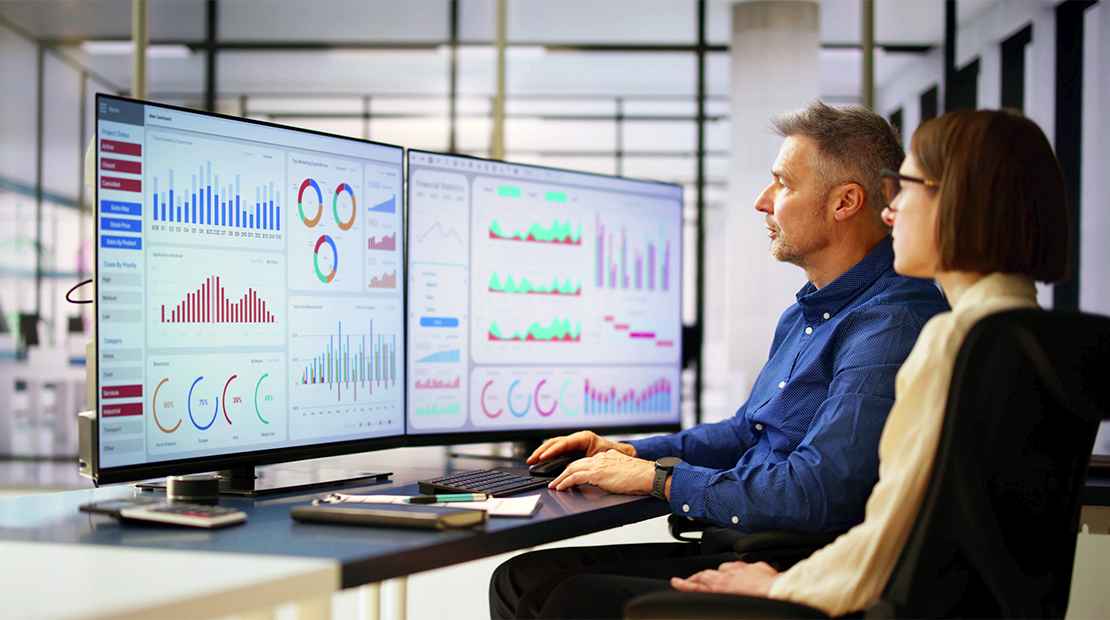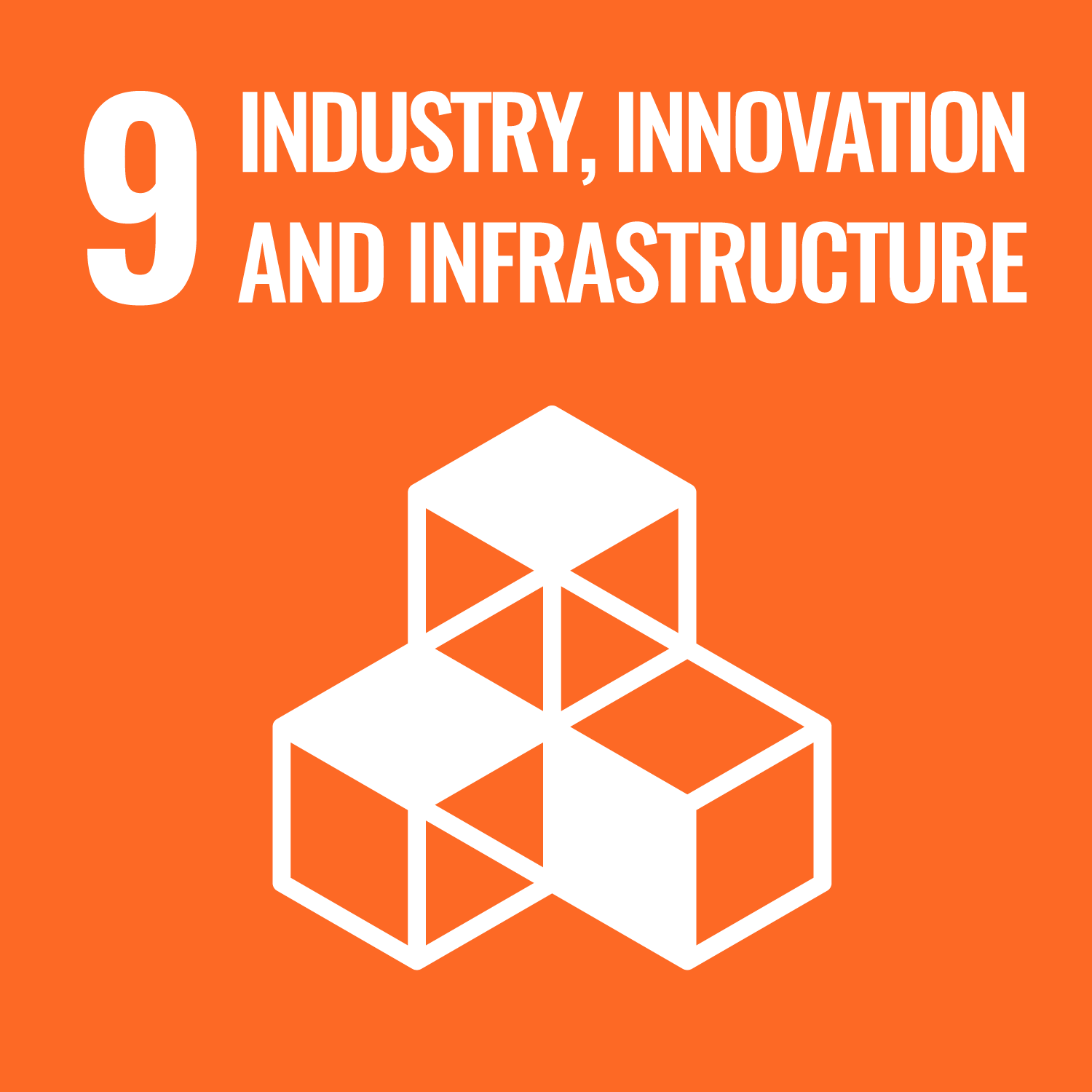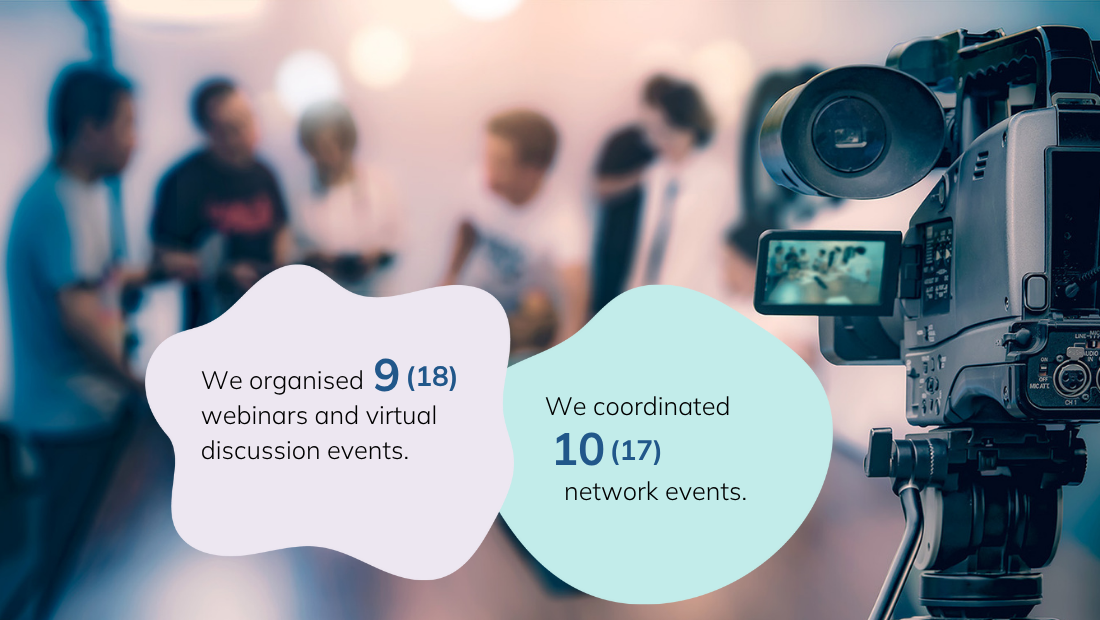Infrastructure development and support for innovation

Challenges
The development of medicines and medical devices is an industry that requires modern technology and a high level of education. High-quality scientific research is promoted in Finland in the pharmaceutical industry but also in university hospitals and universities, for example. Both resources and infrastructure that supports research are needed to support these operations. As a country with a small population and thus a small market area, Finland strives to participate actively in the European Medicines Agency network to ensure the availability of medicines and medical products in Finland.
Supporting innovations in the research, manufacture and use of medicines and medical devices is also important for economic and ecological sustainability.
Supporting innovations ensures the cost-effectiveness of health care, investments in the pharmaceutical sector and the employment of experts in Finland in the future as well. It also makes foresight and preparedness for changes easier. Developing new medicines and medical devices also enables the production of more environmentally friendly and efficient products and devices.
In Finland, all clinical trials on medicines and medical devices undergo a scientific and ethical ex-ante evaluation, which enables Finns to access the latest research treatments. Uniform data resources are also important to ensure the safe and efficient use of medicines. Data resources enable different actors and citizens to quickly access reliable information on medicines and their use.
UN Sustainable Development Goal 9:

9.1 Develop high-quality, reliable and sustainable infrastructure, such as regional and cross-border infrastructure, to support economic development and people’s well-being by investing in affordable and equal access for all.
Fimea’s role and objective
Ensuring and developing a high-quality and safe pharmaceutical sector plays a central role in Fimea’s operations. Fimea’s objective from the perspective of infrastructure includes:
- Develop pharmaceutical sector infrastructure (information systems, service systems, and pharmacy systems) with supporting studies, surveys and development projects, both independently and with stakeholders.
- Utilise the potential of technology to streamline work and meet information needs.
- Carry out research, analysis and development work related to the pharmacy economy, pharmaceutical policy and the development of the distribution of medicines.
- Develop the pharmaceutical sector, for example through the drafting of legislation and informational guidance.
- Act as a representative in the Pharmacy and Financing Division of the Ministry of Social Affairs and Health and produce information as a basis for pharmacotherapy guidance.
How the successful attainment of the objective is promoted
- Active research activities in Finland make pharmaceutical innovations available to patients and bring economic benefits to society. Fimea aims to promote the progress and proper management of clinical trials by developing infrastructure:
- To promote clinical trials, Fimea opened a website (in finnish) for clinical trials seeking participants at the end of January to serve as an information channel for both potential subjects and physicians. The aim is to promote the success of studies and share information on studies that are ongoing in Finland. The page is updated monthly.
- According to EU regulation (536/2014), all active clinical trials had to be transferred to the CTIS (Clinical Trials Information System) portal by 30 January 2025. In autumn 2024, Fimea contacted all the researchers and research project sponsors (440 recipients) who had not yet made the transfer. Doing so ensured that the required measures were taken appropriately or that the research project termination notification required by law was submitted to Fimea.
- Fimea develops its internal processes with various IT solutions:
- In 2024, Fimea started using the Copilot system, which utilises artificial intelligence and automates internal processes, enabling employees to focus on more demanding tasks. Fimea’s AI policies place particular emphasis on data security, ethics and transparency to ensure that the use of the system is as safe and reliable as possible. More than 180 of Fimea’s personnel participated in training on Copilot.
- Fimea has introduced low code solutions in its system development that enable the creation of applications with minimal coding input, which reduces the costs of development and speeds up the implementation of applications. The first low-code solutions, such as the pharmacy register Apteekkirekisteri, Meds75+ and the High-Risk Medicines Classification, were rolled out to production in 2024. Low code solutions have allowed Fimea to manage applications efficiently and to add new solutions quickly and cost-effectively compared to traditional system development.
- Updating the adverse reaction records received through marketing authorisation holders from the EU’ EudraVigilance database into Fimea’s adverse drug reaction database had become backlogged for 2020–2023. To speed up the process of undoing the backlog, the use of AI and programming for assisting the structured recording of pharmaceutical data was investigated. The model proved to be effective, and it was used as a basis for practical development with the supplier of the adverse drug reaction database. The final solution ended up using rules created with traditional programming instead of an AI-based language model. The deployment was scheduled for early 2025 with the aim of being able to process the backlog of records faster.
- Fimea enhances the management of pharmacy operations by developing related service channels:
- The new pharmacy register developed in 2023 entered production use in early 2024, and the development of its functionalities and reporting was continued.
- In 2024, Fimea planned and implemented a system that enables processing pharmacy licences and e-services, which will be introduced in spring 2025. The system streamlines the processing of pharmacy licences and reduces manual work. In the future, e-services can also be used in other data collection related to pharmacy activities and in the processing of notification and licence matters.
- Fimea promotes the accurate identification of medicines worldwide:
- The UNICOM project ended in May 2024, and as a result, Fimea’s basic register for medicines is compliant with the ISO IDMP standard for the identification and description of medicines. This standard enables accurate identification of medicines and safely prescribing medicines across borders. The IDMP standard is the first one used in the ESMP (European Shortage Monitoring Platform) process for reporting the availability of medicines, which helps to get an overall view of the availability, supply and demand of medicines in Europe.
UN Sustainable Development Goal 9:

9.5 Increase scientific research, update technological capabilities of industries in all countries, especially in developing countries, for example by encouraging innovation and significantly increasing the number of R&D staff per million inhabitants and public and private funding for R&D by 2030.
Fimea’s role and objective
Fimea’s objective is to increase scientific research in the pharmaceutical sector, provide advice and support for operators in their development projects and encourage innovation. Fimea’s objectives from the perspective of innovation include:
- Take on responsible roles in the assessment of marketing authorisation applications for medicines and clinical trial applications and in the inspections of pharmaceutical operators.
- Contribute to the preconditions for innovation activities in the pharmaceutical sector and to obtaining foreign research investments in Finnish infrastructure.
- Provide scientific advice and guidance to operators in the pharmaceutical sector.
How the successful attainment of the objective is promoted
- Fimea provides support for the development of medicines and medical devices in order to promote innovation activities in both academia and business life. There are many types of advisory services available at both the national and international level.
- Through the EMA, Fimea participates in the Quality Innovation Group to support production and analysis methods for innovative medicines and in the Innovation Task Force to support individual development projects.
- The aim of the COMBINE project (in finnish)
is to address the legislative challenges of combining clinical trials with research on medical devices (MDs) and in vitro diagnostic medical devices (IVDs). In spring 2024, a report on the project was published describing the identified problems and presenting proposals for potential solutions. - Together with Business Finland, Fimea supports Finnish start-ups in conducting research to produce better medical devices with export potential. In autumn 2024, the experts of the Medical Devices Unit gave an introduction on the new regulations on medical devices to Business Finland’s health and well-being finance experts and customer managers.
| Type of advice Sort the table ascending by the column | 2020 Sort the table ascending by the column | 2021 Sort the table ascending by the column | 2022 Sort the table ascending by the column | 2023 Sort the table ascending by the column | 2024 Sort the table ascending by the column |
|---|---|---|---|---|---|
| EMA/SAWP advice | 96 | 126 | 103 | 86 | 95 |
| National scientific advice (human medicines) | 11 | 8 | 8 | 5 | 12 |
| Medication counselling clinic (human medicines) | 8 | 0 | 0 | 6 | 11 |
| Medical Device Advisory Clinic* | - | - | - | 9 | 9 |
| National scientific advice (veterinary medicines) | 0 | 0 | 1 | 0 | 0 |
| Medication counselling clinic (veterinary medicines) | 1 | 1 | 0 | 0 | 0 |
- In 2024, Fimea organised discussion events and webinars for different target groups:
- The Clinical Device Trials Department organised five discussion events for the research service units and researchers of universities and university hospitals. Topics of the discussion events included software research, the requirements of the MD and IVD Regulations for researchers and the activities of the medical device advisory clinic.
- The Clinical Device Trials Department organised three webinars together with the National Committee on Medical Research Ethics Tukija. Webinar topics included the promotion of clinical trials and practical experiences during the EU regulatory period, the potential of biobanks in clinical trials, inspections of good clinical practice (GCP), national scientific advice, assistance for academic researchers, topical issues related to the ethical evaluation of studies, and CTIS practical help for researchers. Each of the webinars had more than 200 attendees.
- In addition, Fimea organises annual discussion events for the pharmaceutical industry to address changing legislation and opportunities for participating in Finnish or EU innovation events. Events are organised annually on Good Manufacturing Practices (GMP), Good Distribution Practices (GDP) and Advanced Therapeutic Medicines (ATMP), and every two years on Good Laboratory Practices (GLP). Fimea also actively participates in other countries’ GDP audit units’ auditing programmes and training (Joint Inspection Training).

- The number of marketing authorisation assessments for medicines carried out by Fimea as the responsible rapporteur country for the EMA-coordinated centralised marketing authorisations is still high compared to the size of the agency.
| Marketing authorisation transactions Sort the table ascending by the column | 2020 Sort the table ascending by the column | 2021 Sort the table ascending by the column | 2022 Sort the table ascending by the column | 2023 Sort the table ascending by the column | 2024 Sort the table ascending by the column |
|---|---|---|---|---|---|
| Centralised procedure reporting tasks | 785 | 841 | 920 | 895 | 960 |
- Fimea cooperates with other countries related to the operations of the World Health Organization (WHO).
- Fimea grants marketing authorisation holders Certificates of a Pharmaceutical Product (CPP) for exporting medicines abroad and to third countries in WHO cooperation. CPPs are issued for medicines for human or veterinary use with a marketing authorisation in Finland, and in 2024, a total of 231 of such certificates were granted (2023: 148). By granting CPPs for export purposes, Fimea also supports other countries’ access to effective and safe medicines while accounting for patient safety.
- The International Pharmacopoeia by the WHO includes international expert activities with the purpose of especially providing third, low-income countries with harmonised research and operating methods and standards for key medicines and pharmaceuticals. The aim of the activities is to guarantee high-quality medicines for everyone regardless of geographical location and wealth; the hope is that it will also prevent the illegal distribution and sale of counterfeit and low-quality medicines.
- The Fimea Laboratory is part of the WHO-National Control Laboratory Network for Biologicals (NNB). The network shares technical information on the quality assurance of vaccines and biological medicines and promotes best practices and harmonisation in the field.
- Fimea develops pharmacovigilance through laboratory activities in a changing operating environment
- The number and use of biological medicines is growing dramatically, and authorities have to reform their supervision and make it more efficient to keep up with this development. The Fimea Laboratory has been involved in creating new types of performance-based general methods for the quality control of therapeutic antibodies in the European Pharmacopoeia, and two of these methods were finalised in 2024.
- To strengthen the international capacity for controlling biological medicines, the Fimea Laboratory organised a practical course on cell-based methods for members of the OMCL network. Cell-based methods are used to determine the efficacy of biological medicines. Laboratory experts from eight countries took part in the course.
- There is an effort to develop authority supervision to also cover new types of medical products, such as gene therapy products. The Fimea Laboratory is leading a project related to the testing of gene therapy products in the European Official Medicines Control (OCML) network.
- The Laboratory has also prepared for expanding its activities to enable the testing of medical devices.
- Fimea is participating in EU authorities’ joint EU4Health programme project to harmonise the market surveillance of medical devices (JAMS 2.0). The project involves a total of 24 European agencies conducting surveillance of medical devices, and it consists of a total of eight work packages, of which Fimea participates in two. These work packages focus on incident management, signal detection and processing, and harmonising inspections of manufacturers and other economic operators (authorised representatives, importers, distributors) in different European countries by carrying out joint inspections between the authorities of different countries.
- The aim of Fimea’s research activities is to promote the rational use of medicines and support societal decision-making to promote public health and increase the wellbeing of the population.
- The research strategy of the Research Network for Rational Pharmacotherapy (RATTI) for 2025–2029 was published at the end of 2024. The strategy guides research with the purpose of promoting the utilisation of research data in the implementation of rational pharmacotherapy. According to the vision, the research on rational pharmacotherapy and pharmaceutical services will be systematic and respond to the identified needs of medicine users and the health and social services system by 2029. Research data is used in the development of the service system and services, impact-based steering and political decision-making. Several parties conducting research on rational pharmacotherapy and pharmaceutical services participated in the strategy update under Fimea’s leadership.
- Fimea’s researchers actively participate in versatile research projects. The results of these projects were published in 2024 in a total of four original publications and two research publications in the publication series Fimea kehittää, arvioi ja informoi (Fimea develops, assesses and informs). The topics of the 2024 publications included the use of sedatives, sleeping medications and ADHD medications and the delivery of a cross-border electronic prescription in pharmacies. An international article was also published on the development of the Meds75+ database for the pharmacotherapy of older people.